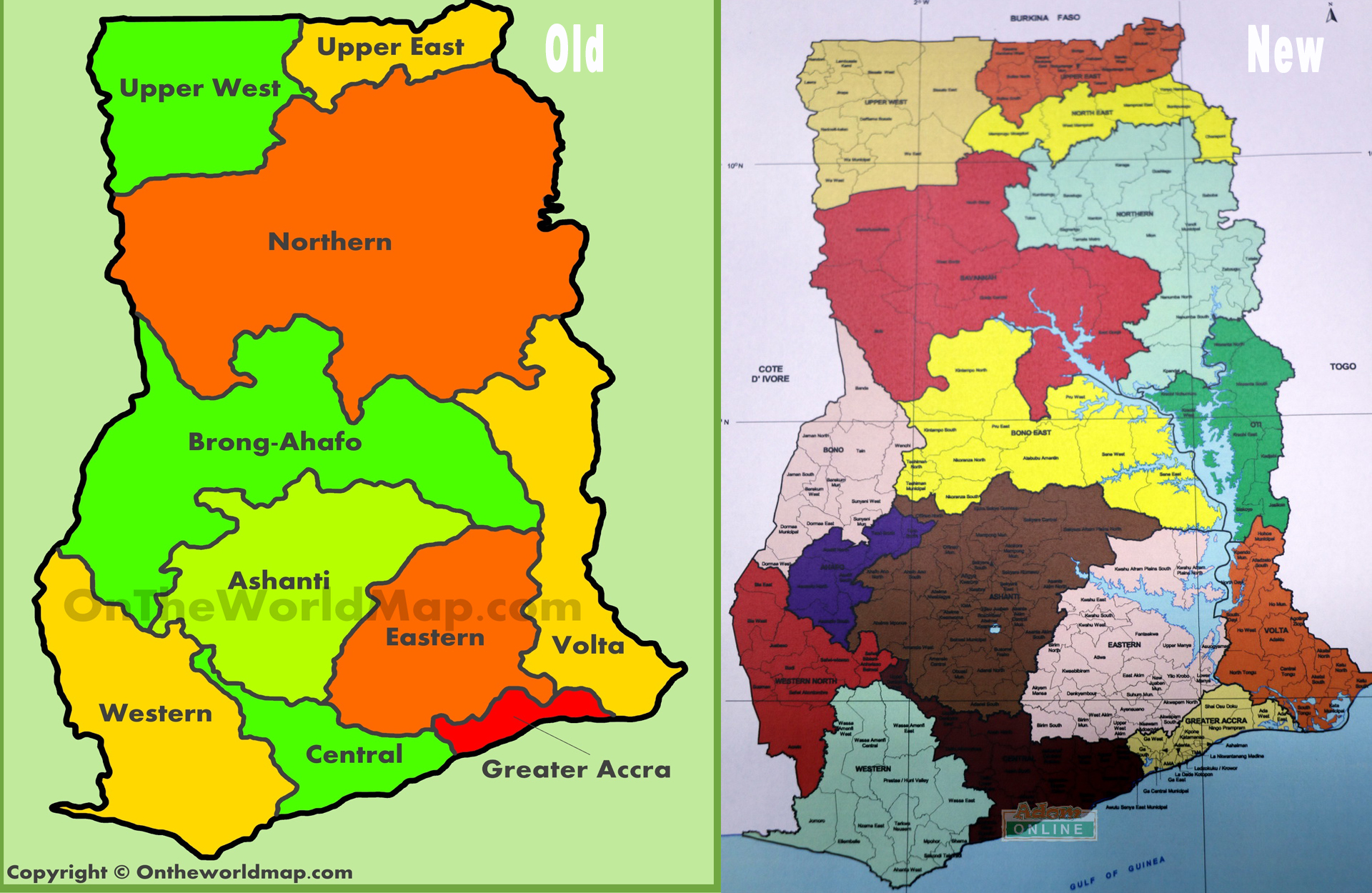It has been announced that this week will witness the issuance of Constitutional Instruments (CIs) to give effect to the creation of six new administrative regions. This follows the successful constitutional processes that were required for the creation of the six regions (Oti Region out of the current Volta Region; Bono East and Ahafo Regions out of the Brong Ahafo Region; Western North from the Western Region; and Savannah and North East Regions out of the current Northern Region).
Since the referenda that saw massive approvals for the creation of the administrative regions, the various interested stakeholders have not spared any time in jostling for the siting of the regional capitals in their towns of choice. Clearly this is nothing strange, since the desire for accelerated development was the underpinning for the drive for the new regions to start with. Indeed, in times past under this democratic dispensation, we had witnessed that anytime new administrative districts were created, the chiefs and development associations of those towns strongly lobbied for the siting of the district capitals. A classic case was in 2012 when thirty-eight new districts were created including the Ningo-Prampram District. For many weeks, both Ningo and Prampram jostled to be given the district capital status. Eventually, Prampram was settled upon to the huge disappointment of Ningo whose leaders threatened not to take their seats in the new Assembly.
It was therefore refreshing the assurance from the Minister for Regional Reorganization and Development that none of the contending towns for the six regional capitals would end up losing out since the government was mindful about the urge for development from all those towns. This sounded a bit intriguing but further and better particulars from the Information Minister subsequently, appear to have clarified the situation. Beyond designating a particular town as the official administrative capital for the region, efforts would be made to designate other towns as ‘capitals’ for say Education, Health, Agriculture, Industry, culture, etc. This is slightly similar to the situation in Western. It became a region in its current form in July 1960 with Sekondi as its regional capital. However, the government deliberately spread out the decentralized regional administrative offices in Sekondi, Takoradi and even to some extent Shama. This accelerated the pace of development so much so that there was’t any difference between Sekondi and Takoradi with regards to which of them was actually the capital.
Again, the situation is not much different in countries like South Africa, Cote I’voire and Nigeria though those are scenarios at the national level.
In South Africa for example, even though the officially designated capital is Pretoria, Pretoria operates as the capital for the Executive, Bloemfontein as the capital for Judiciary, Cape Town as the capital for the Legislature and Johannesburg as the Economic capital. In the Federal Republic of Nigeria, when Abuja was created as the new political capital in the late 1980s, they still retained Lagos as the commercial capital. Similarly, in Code d’Ivoire Abidjan was retained as the commercial capital when Yamousoukro was created as the new political capital. What this has done in a country such as South Africa is that development has spread out across the country evenly. Note that the four capitals of South Africa are quite well spread out across the country.
Currently in Ghana, we have Accra as our capital with all sectors of the economy headquartered from the big city i.e. economic, executive, agricultural, judiciary, legislature, education, cultural and industry. Over time, suggestions have been floated for us to adopt the structure of South Africa for instance. Is it not intriguing that our Ministry of Agriculture (including Cocoa) with all its agencies are centred in Accra even though very little agricultural activity takes place in Accra. Same goes for several other areas of endeavour. Until very recently, citizens had to troop to Accra from all corners of the country just to process passports, a situation which was clearly unacceptable. As for trooping from one end of a Region to its regional capital for simple services, this is a headache hundreds of Ghanaians have to contend it in their daily lives.
Just as is being contemplated in the new regions, it would be most appropriate to consider same at the national level. Why can’t we relocate the agricultural base of Ghana to say Techiman. For all the entities making up the oil and gas industry, we could relocate them and the Ministry of Energy, Ghana National Petroleum Corporation, Head Offices of Bulk Oil Storage and Transportation Company (BOST), Tema Oil Refinery (TOR), etc all to say Takoradi; designate Kumasi as our legislative capital and relocate our House of Parliament to Kumasi which is quite central to all the constituencies in Ghana. For all its prestigious secondary schools, universities, etc, Cape Coast could easily pass for the educational capital. Koforidua, Tamale, Wa, Ho, etc could all be designated for other sectors of national life thus leaving the city of Accra only as the political capital for executive presidency and its machinery only. And while at it, is it possible to explore the spread of the regional capitals in the existing regions too? Just thinking aloud!
What such a move will do is that development will be a lot more spread around the country thus reducing the tendency of rural poor moving towards the single national capital. Secondly, the siting of critical sectors of national life in any town will ensure that government staff and key officials that move into those towns will improve the life of those local economies (demand for housing and increase in rental incomes, demand for meals and catering services, improvement in night life and entertainment) as well as the establishment of regional government offices and other mandatory establishments will open up these towns for the influx of industries, trading and other economic activities.
The creation of the six new administrative regions in themselves will not amount to much except if it helps in the opening up of those areas of the country up for accelerated development. As the Constitutional Instruments (CIs) get signed, issued and regional capitals named, the time is nigh to have our planners get to work in ensuring that these new regional capitals begin on a sound footing. Let’s spare them the agony of haphazard development as we continue to see in Accra and if anything at all, get them to be as planned as Akosombo, Tema and Wa were in the 1990s. This is very possible depending on the pragmatic steps government and its agencies decide to take in that regard.
Can our authorities please take a second look at this?

My dear friend,

